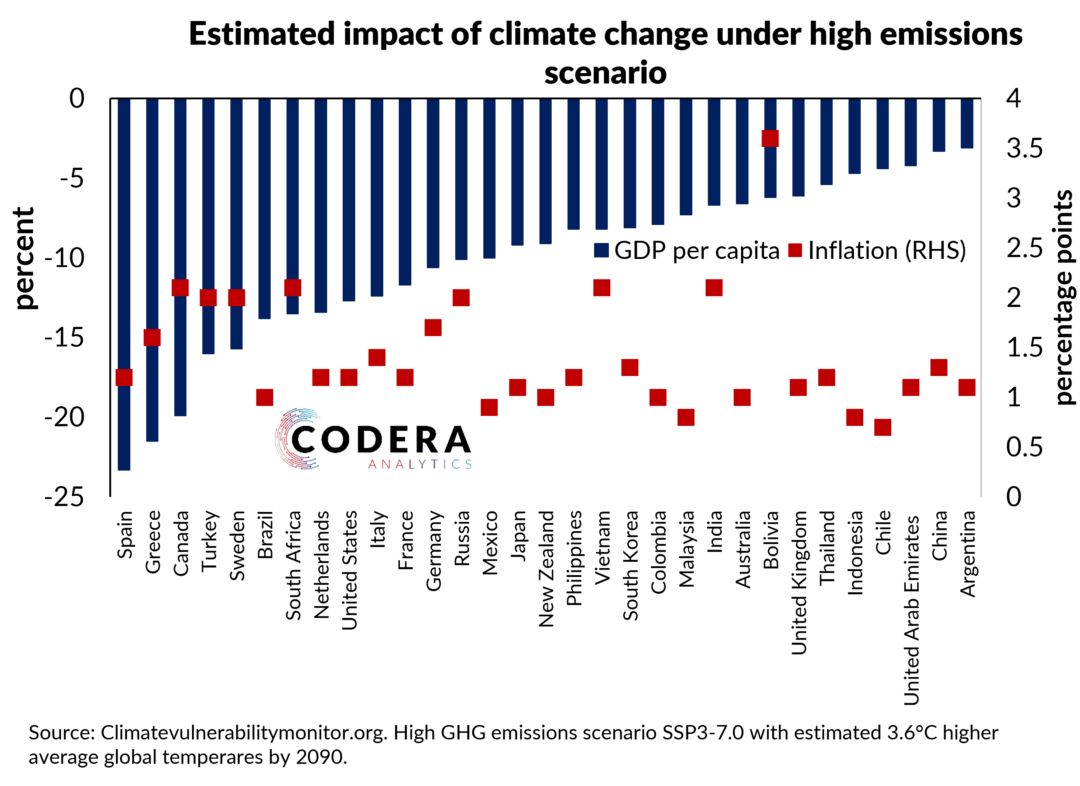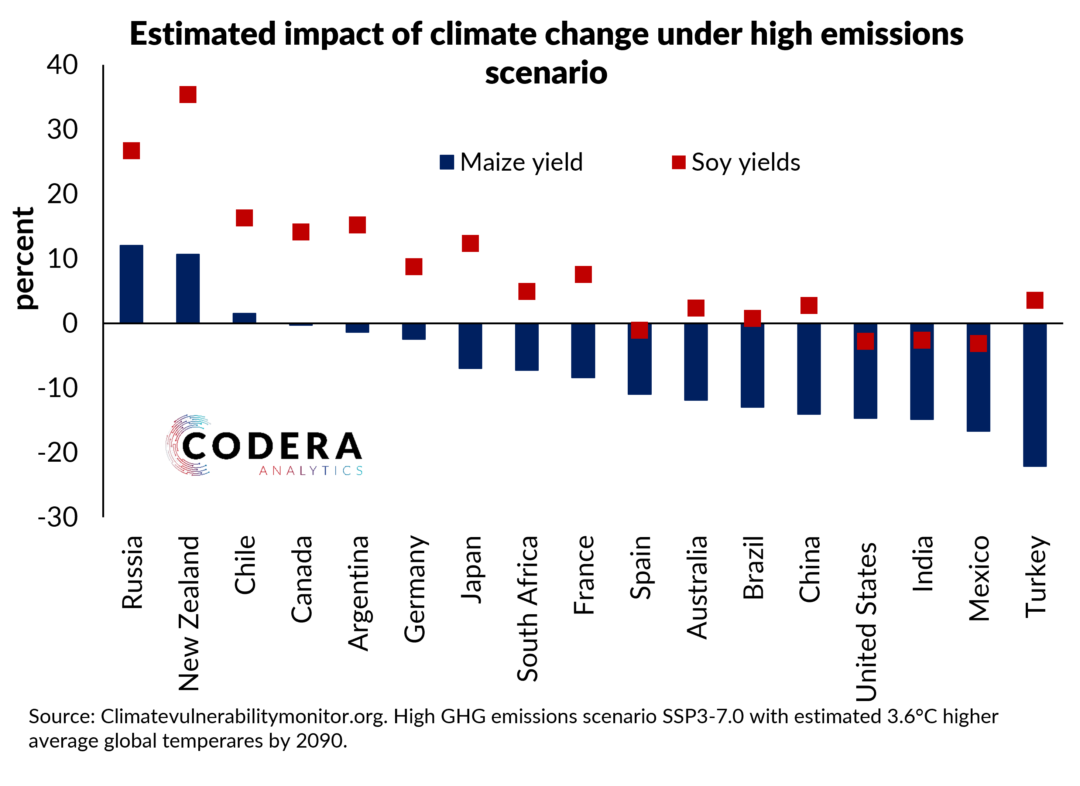Bjorn Lomborg argues in a new paper that climate change is not the costliest problem facing humanity and that on a cost-benefit basis climate policy performs poorly relative to policies aimed at addressing air pollution, education, gender inequality, health, nutrition, trade or conflict. The paper suggests that the total cost from not implementing climate policy would be equivalent to a 3.6% reduction in total GDP. However, since humans are expected to become much wealthier in future, damages from climate change over the 21st century are estimated to reduce human welfare by less than 4% under scenarios set out under the UN Climate Panel (IPCC, from a predicted increase of 450% to 434%).
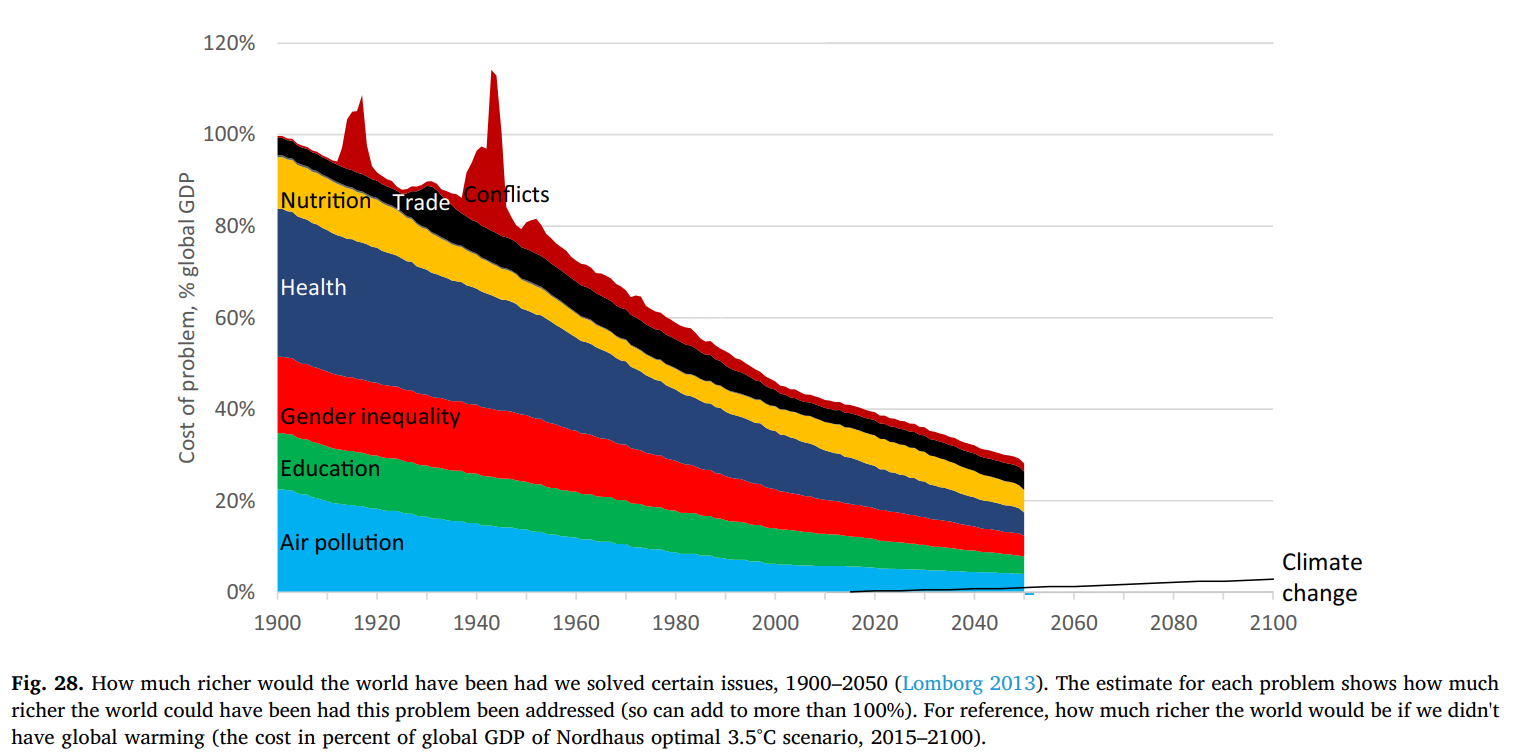
The paper also presents data of extreme weather events over history, showing that the frequency of such events have not been increasing (see below).
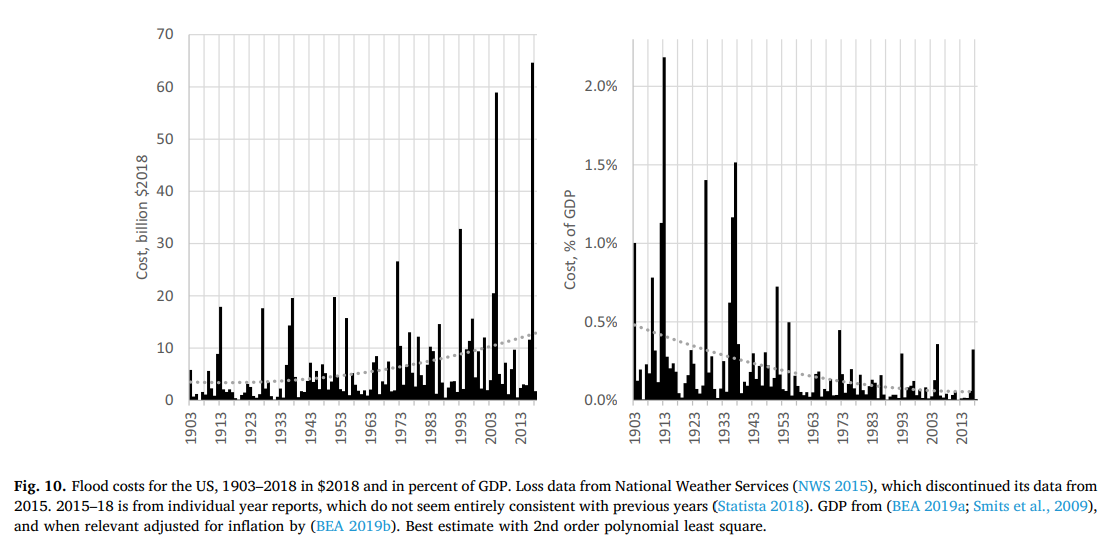
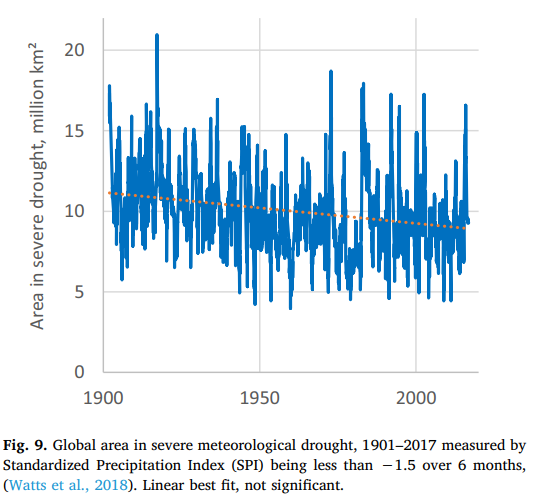
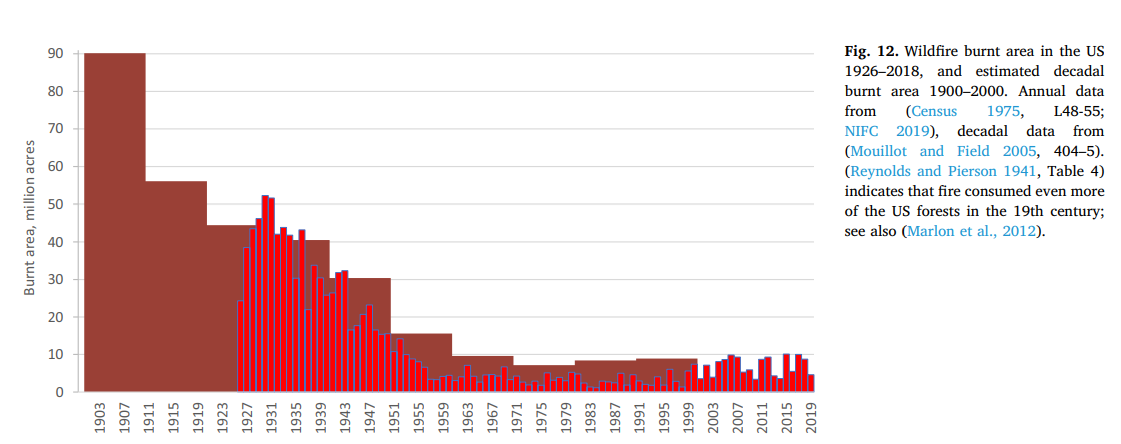
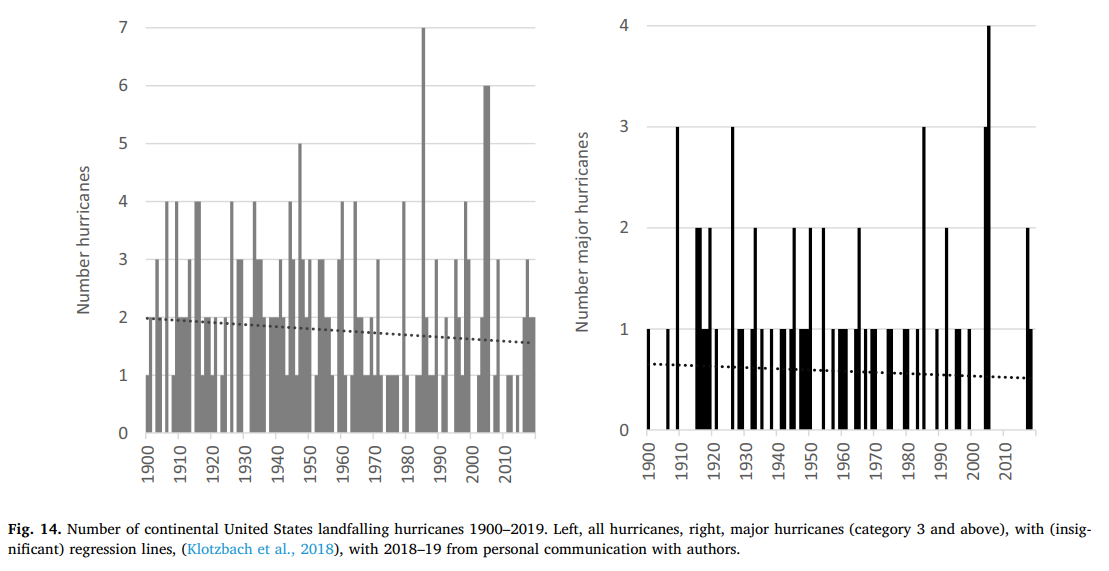
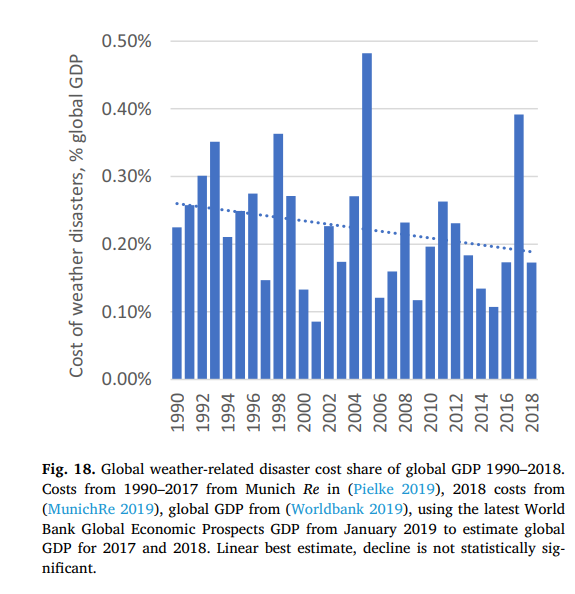
Lomborg compares climate costs under various scenarios to projections of income out to 2100. Humans are expected to become much wealthier over the next several decades, and argues these increases dwarf the negative impacts of climate change. For example, the scenario in the top left panel of the figure below would involve a cost between 2.5% of GDP and 5.7%, implying “that instead of per person GDP in 2100 being six times larger than its 2020 value, it will be 5.9 times its 2020 value after deducting the climate damage.”
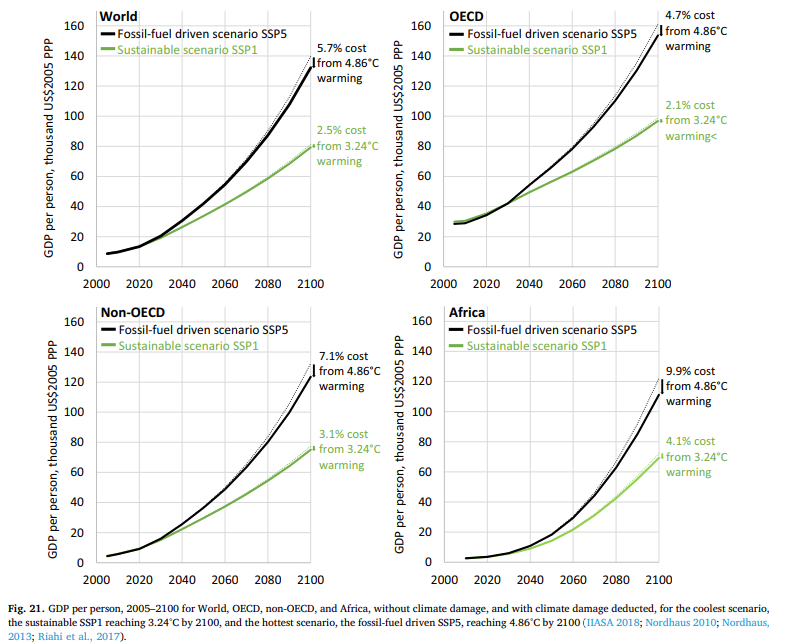
Cost-benefit analyses presented in the paper suggest that freer trade, for example, would generate massive benefits, producing US$1,000 higher incomes each year for each person in the developing world. US$1 of climate policy spending under the Paris Agreement is estimated to produce just US11 cents in benefits. However, some forms of climate spending, such as investment in R&D for green technologies, could deliver US$11 of benefits for a US$1 of spending.
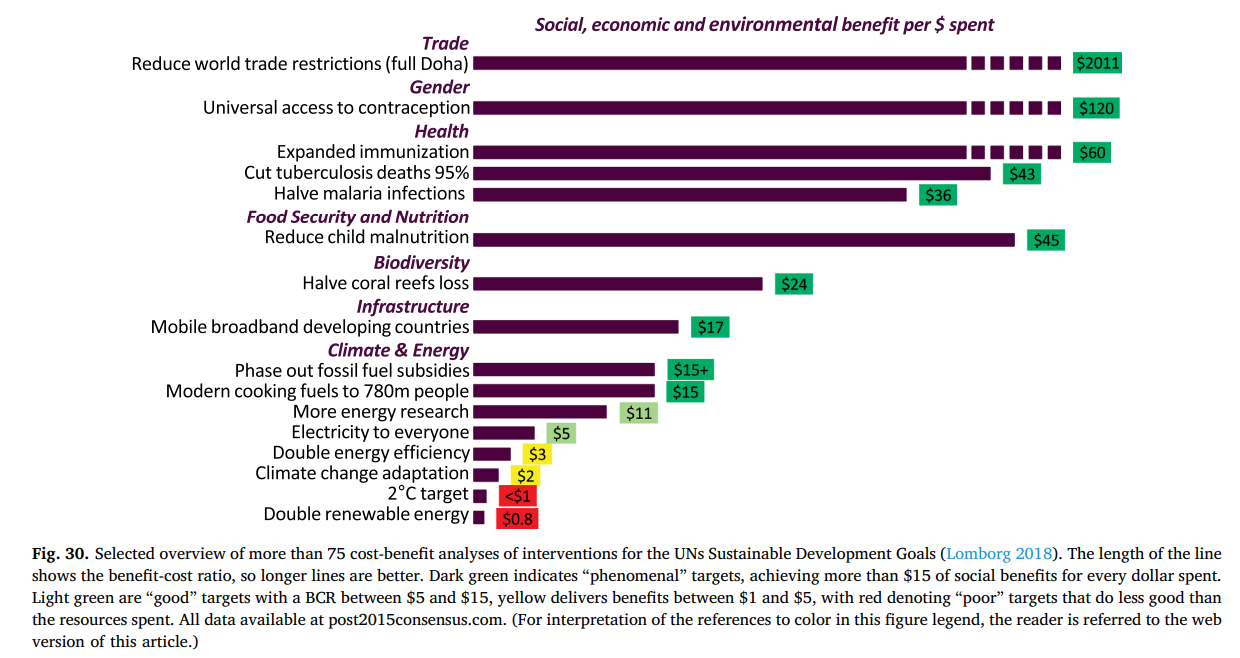
Finally, Lomborg argues that ‘the current climate discourse leads to wasteful climate policies, diverting attention and funds from more effective ways to improve the world’.
It is worth reposting the estimated we presented in earlier post that suggest for South Africa that climate change damage under a high warming scenario would reduce GDP per capita growth by 13.5% by 2090. These estimates are much lower than the cumulative impact of existing factors weighing on South Africa’s growth such as electricity load-shedding and are dwarfed by the actual decline in our GDP per capita over the last decade (and over the much longer term).
